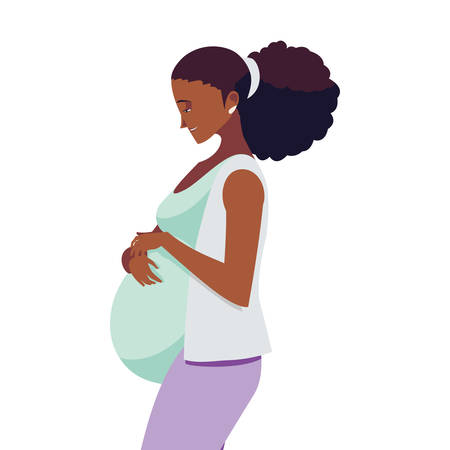Understanding First Trimester Changes
The first trimester of pregnancy is a time of exciting changes, but it can also bring unexpected challenges—especially when it comes to travel. Many women experience common symptoms such as morning sickness, increased fatigue, and emotional ups and downs during these early weeks. Morning sickness, which can strike at any time of day, may make long car rides or flights uncomfortable. Fatigue is another frequent companion, as your body works overtime to support your developing baby. You may find yourself needing more rest than usual or feeling easily worn out after activities that once felt routine. Emotional changes, fueled by hormonal shifts, can also affect your mood or stress levels while traveling. Additionally, you may have new medical needs or appointments that require careful planning before any trip. Understanding how these physical and emotional changes can impact your travel plans is the first step toward making your journey as safe and comfortable as possible during early pregnancy.
Consulting Your Healthcare Provider
Before booking your tickets or packing your bags, it’s crucial to have an open conversation with your OB-GYN or midwife about your travel plans. Early pregnancy is a period of significant change, and your provider can help assess any risks associated with traveling during the first trimester. Sharing specific details about your destination, planned activities, and mode of transportation allows your healthcare team to give tailored advice for your unique situation.
What to Discuss With Your Provider
When planning travel in early pregnancy, don’t hesitate to bring a list of questions to your appointment. Here are some essential topics you might cover:
| Topic | Questions to Ask | Information to Provide |
|---|---|---|
| Destination Health & Safety | Are there any travel advisories or vaccination requirements? Is Zika virus a concern? | Name of the city/country, climate, altitude, and access to medical facilities |
| Travel Duration & Mode | Is it safe for me to fly or take long car trips in the first trimester? | Length of journey, type of transportation (car, plane, train) |
| Medical History & Symptoms | Given my medical history, is there any reason I shouldn’t travel? | Any current symptoms (nausea, spotting), past pregnancy complications |
| Activities Planned | Are there activities I should avoid while traveling? | Description of physical activities (hiking, swimming) or events (conferences) |
| Emergency Care Access | If something happens while I’m away, what should I do? | Details on proximity to hospitals or clinics at your destination |
Your Next Steps After Consultation
Your healthcare provider may recommend certain precautions such as carrying prenatal vitamins, staying hydrated, and knowing the location of nearby medical facilities. They can also provide documentation if airlines require a doctor’s note. By proactively discussing these points before you leave, you’ll be better prepared for a safe and comfortable trip during your first trimester.

3. Best Modes of Transportation
Choosing the right mode of transportation is essential for a safe and comfortable journey during your first trimester. Each option—flying, driving, or taking trains—has its own advantages and challenges, especially when youre newly pregnant. Here’s what you should know before planning your trip.
Flying
Pros
Flying is often the fastest way to reach your destination, which can minimize travel fatigue. Most airlines allow healthy pregnant women to fly during the first trimester, and airports across the U.S. are equipped with amenities like family restrooms and easy-access seating.
Cons
Air travel can involve long security lines, delays, and cramped seating, which may not be ideal if you’re experiencing morning sickness or fatigue. Changes in cabin pressure might also increase discomfort for some moms-to-be.
Safety Tips
Stay hydrated by drinking plenty of water, walk around the cabin when possible to promote circulation, and choose an aisle seat for easier bathroom access. Always check with your healthcare provider before booking your flight.
Driving
Pros
Driving gives you more control over stops and timing, making it easier to manage nausea or take breaks when needed. You can pack snacks, pillows, and anything else that makes you comfortable.
Cons
Sitting for long periods may lead to swelling or discomfort. Road trips can also mean exposure to bumpy roads and limited access to clean restrooms in rural areas.
Comfort & Safety Tips
Buckle up with the seatbelt below your belly and across your hips, stop every couple of hours to stretch your legs, and keep healthy snacks on hand. Consider sharing driving duties if possible.
Trains
Pros
Train travel is generally smooth and allows you to move around freely. Amtrak routes across the U.S. offer comfortable seating, dining cars, and accessible bathrooms.
Cons
Schedules can sometimes be less flexible than driving, and train stations may not always be conveniently located for your final destination.
Travel Considerations
If you opt for a longer journey by train, bring a pillow for extra back support and wear loose-fitting clothing. Walk the aisles as needed to improve circulation.
No matter how you choose to travel in your first trimester, plan ahead and listen to your body’s needs. Prioritize comfort and safety so you can enjoy both your journey and your pregnancy.
4. Packing Essentials for Pregnant Travelers
When it comes to traveling during your first trimester, having the right items in your carry-on or suitcase can make all the difference in your comfort and safety. Below are some must-have essentials every pregnant traveler should consider packing, especially if you’re flying within the United States or taking a road trip across states.
Must-Have Items for Your Carry-On
| Item | Why It’s Important |
|---|---|
| Healthy Snacks | Keep your blood sugar stable and ease nausea with easy-to-carry options like granola bars, crackers, or dried fruit. |
| Refillable Water Bottle | Staying hydrated is crucial; bring a leak-proof bottle to refill after airport security or on the go. |
| Prenatal Vitamins | Maintain your supplement routine by packing enough prenatal vitamins for your entire trip, plus a few extras just in case. |
| Comfortable Clothing | Choose loose-fitting layers and slip-on shoes for maximum comfort during long flights or car rides. |
| Medical Documents | Carry copies of your prenatal records, insurance information, and doctor’s contact details in case you need medical care while away from home. |
| Travel Pillow & Blanket | A small pillow and lightweight blanket can help you get much-needed rest while traveling. |
| Hand Sanitizer & Wipes | Keep germs at bay with travel-sized sanitizer and wipes—especially important when visiting busy airports or rest stops. |
Packing Tips for Pregnant Travelers
- Plan for Comfort: Pack extra layers and a scarf or shawl in case temperatures fluctuate.
- Shoes Matter: Choose comfortable, supportive footwear that’s easy to slip on and off at TSA checkpoints or frequent bathroom stops.
- Don’t Forget Medications: Bring any prescribed medications in their original containers to avoid issues at airport security.
- Organize Medical Info: Keep emergency contacts and information about your pregnancy accessible in your purse or carry-on bag.
- Snack Smart: Opt for snacks high in protein and fiber to help stave off hunger between meals and keep energy levels up during long travel days.
Your Health Comes First
No matter where your travels take you, prioritizing your well-being is essential. Packing thoughtfully means you’ll be prepared for minor discomforts and unexpected situations alike, allowing you to focus more on enjoying your journey. If you have specific health concerns or questions about what to bring, don’t hesitate to reach out to your healthcare provider before departure. Safe travels!
5. Staying Comfortable and Healthy on the Road
Managing Morning Sickness While Traveling
Morning sickness can strike at any time, especially during the first trimester, making travel challenging for many moms-to-be. Pack plenty of healthy snacks like crackers, granola bars, or fruit to nibble on throughout your journey. Ginger chews or peppermint candies can also help ease nausea. If you’re flying or riding in a car, request a seat near the restroom and keep motion sickness bands handy just in case. Don’t hesitate to let your travel companions know if you need to take a break or adjust plans due to feeling unwell.
Staying Hydrated
Proper hydration is essential for both your comfort and your baby’s health while traveling. Bring a reusable water bottle and refill it regularly at airports, rest stops, or restaurants. If you’re flying, remember that air travel can be dehydrating—aim to drink water every hour. Avoid too much caffeine and sugary drinks, as they can contribute to dehydration. Staying hydrated also helps reduce swelling and fatigue during long trips.
Avoiding Travel Fatigue
Traveling can be exhausting even when you’re not pregnant, so listen to your body and pace yourself. Schedule extra rest time into your itinerary and allow for frequent breaks during road trips or sightseeing. Choose comfortable accommodations that allow you to prop up your feet and relax at the end of each day. Wear supportive shoes and clothing that won’t restrict circulation. Prioritize sleep—bring earplugs and an eye mask if you’re staying in unfamiliar places.
Maintaining Routine Prenatal Care
Just because you’re away from home doesn’t mean prenatal care should take a back seat. Before leaving, check with your OB-GYN about any special precautions based on your pregnancy needs. Pack copies of your medical records and know where the nearest hospital or clinic is located at your destination. Set reminders for prenatal vitamins and medications so you don’t miss any doses while on the go. Finally, stay connected with your healthcare provider through telehealth appointments if needed—they can offer support no matter where your travels take you.
6. Destination Safety and Accommodation Tips
Choosing the right destination and accommodations is especially important when traveling during your first trimester. Here are some key factors to consider to ensure both your safety and comfort:
Proximity to Medical Facilities
When selecting a travel spot, make sure there are reputable medical facilities nearby. In case of unexpected symptoms or emergencies, having access to healthcare professionals who understand prenatal needs can offer peace of mind. Check if your health insurance covers out-of-state or international care, and research hospitals or clinics at your destination before you go.
Food Safety
Pregnant travelers are more susceptible to foodborne illnesses, which can pose risks to both mother and baby. Choose destinations with clean water supplies and well-reviewed restaurants that prioritize hygiene. Avoid street food or undercooked dishes, and always drink bottled or filtered water. Don’t hesitate to ask about how food is prepared—your health comes first.
Accessibility and Comfort
Your energy levels may fluctuate during the first trimester, so opt for accommodations that minimize strenuous activity. Look for hotels with elevators, accessible bathrooms, and comfortable bedding. If you’ll be sightseeing, consider destinations where transportation is easy—such as shuttle services or rideshare options—so you’re not walking long distances or navigating steep stairs.
Additional Considerations
- Check the climate: Extreme heat or cold can affect pregnancy comfort.
- Review local healthcare standards: Some countries may have different standards of care; consult your OB-GYN for recommendations.
- Access to nutritious food: Ensure healthy meal options are readily available near your lodging.
Traveling thoughtfully during your first trimester sets the foundation for a safe and enjoyable trip. By planning ahead and prioritizing these factors, you can focus on making lasting memories while taking good care of yourself and your growing baby.
7. When to Postpone or Cancel Travel Plans
While many women can travel safely during their first trimester, there are certain situations where it’s best to reconsider your plans for the health of both you and your baby. Recognizing warning signs and understanding high-risk factors is crucial before heading out on any trip.
Recognizing Red Flags
If you experience symptoms such as heavy vaginal bleeding, severe abdominal pain, persistent nausea or vomiting that prevents you from keeping food or fluids down, dizziness or fainting, or any signs of dehydration, it’s important to contact your healthcare provider immediately. These symptoms could signal a complication that may require medical attention and make travel unsafe.
High-Risk Pregnancy Considerations
Certain conditions may increase the risk associated with travel during early pregnancy. If you have a history of miscarriage, ectopic pregnancy, pre-existing medical conditions like high blood pressure or diabetes, or if your healthcare provider has identified your pregnancy as high-risk, discuss all travel plans in detail before booking tickets. In some cases, your provider may advise against traveling until later in your pregnancy or after further evaluation.
Travel Destinations and Healthcare Access
Your destination matters as well. Remote areas with limited medical facilities or destinations requiring long flights may not be ideal if there’s a higher chance of needing prompt prenatal care. Consider postponing trips to locations with limited access to reliable healthcare services.
Listening to Your Body and Provider
Ultimately, trust your instincts and prioritize open communication with your OB-GYN or midwife. If you’re feeling unwell or uneasy about traveling—even if everything seems normal—don’t hesitate to reschedule. Your peace of mind and safety come first.
Final Thoughts
While it’s often possible to enjoy travel during the first trimester, being mindful of warning signs and honest about how you’re feeling can help ensure a safer experience for both you and your growing baby. When in doubt, err on the side of caution—it’s always okay to postpone travel plans when necessary for your health and comfort.


